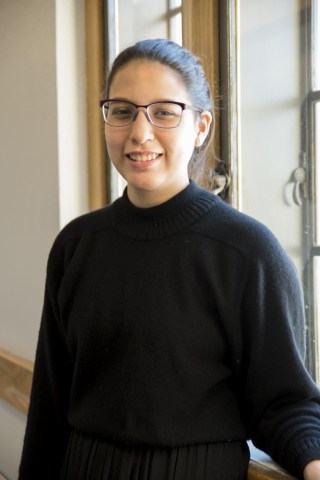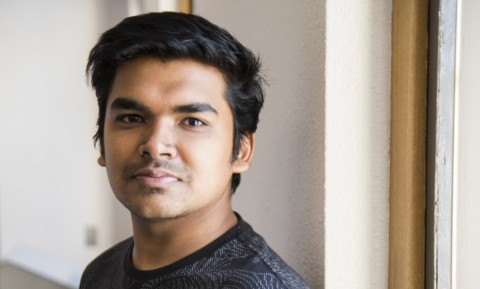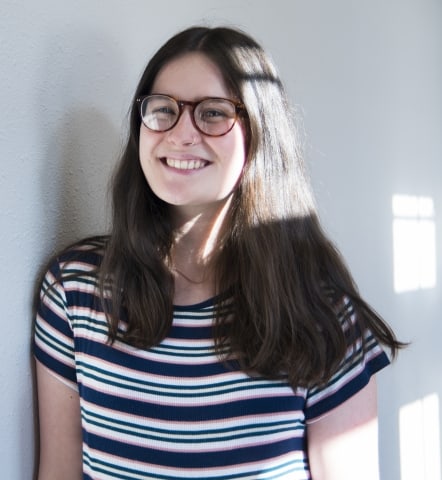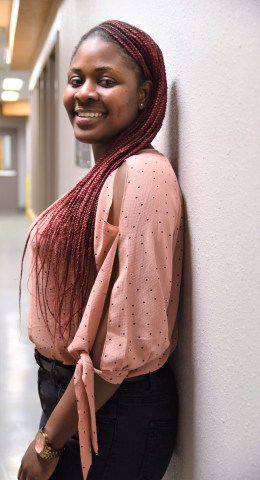For our travel and international issue, I’ve decided to talk to four international students to find out their sincerest thoughts on what it’s been like to live in Saskatoon and study at the University of Saskatchewan. Here is what they have to say.
Ana Cristina Camacho, 19, from Guayaquil, Ecuador
first-year English

In 10 words or less, sum up your time in Saskatoon.
“It’s an interesting experience. It has its ups and downs.”
Why did you decide to study here?
“The university came to my town, and it sounded great. I met some of the professors a couple of years ago. Also, the U of S has good financial aid, which will add up.”
In what ways has the U of S met your university expectations? In what ways hasn’t it?
“It has an English program, which is not offered in my country. I don’t really have anything to compare it to, but I like the classes. There are so many events that you can find for any interest. And just the city, it has a lot of cultural events that I’m interested in. It has allowed me to do the things I like — I haven’t had to compromise my interests to fit some other major.”
What did you know about Saskatoon before coming here, and how has your time here measured up to that?
“I knew basically nothing, looking back. Most of what I heard came from Google searches. I come from a town of three million [people], so I thought it would be extremely small. When I came here, I was looking out the window downtown, and there were really small buildings. I just thought, ‘This is my life now.’ It’s a small city but has the benefits of a large city. I love the library system.”
What have you enjoyed about living in Saskatoon?
“The library system is my main thing. I found it two months into university, and I love it. I can cultivate some really weird interests, and they find some good books for me. Maybe it sounds weird if you’re not used to it, but the public transit system as well. Because of it, I can do and see whatever I want. It’s nice to feel like I can build my own experience and that there is nothing limiting me.”
What are some quintessential Saskatonian things that you have picked up on?
“Many people at the university are from a town nearby — it doesn’t really matter what town it is, they are just from that place. It’s cool that the U of S is a local university for some people. The winter clothes were a learning curve… Hockey — everyone talks about it.”
—
Mashrafi Haider Iqra, 21, from Chittagong, Bangladesh
second-year computer science and economics

In 10 words or less, sum up your time in Saskatoon.
“It’s busy and stressful. There [are] lots of friendly people.”
In what ways has the U of S met your university expectations? In what ways hasn’t it?
“It’s a place where you have lots of opportunities in [the] things you want to explore. You can be a leader. You can get into different clubs and organizations. You can be a representative of USSU and defend cultural groups… Besides that, people are very friendly and open to help you out. I don’t have anything in my mind about how the university hasn’t met my expectations.”
What did you know about Saskatoon before coming here, and how has your time here measured up to that?
“The weather was a concern for me. I’m from a country where the weather is 9-16 degrees [Celsius] in the winter — it’s almost like Vancouver. It was kind of scary for me to come to a place where winter means minus 40. However, when you’re facing it, it’s much easier than when you visualize it back home… When I got here, I thought it wasn’t bad.”
What has surprised you the most about Saskatoon or Saskatonians?
“I’ve travelled to different cities here, but people from Saskatchewan are more helpful and friendly. Also, I’d say that it’s a place for opportunity. When you’re a student looking for a job — and you’re serious about looking for it — you’ll get one. I’ve got friends in big cities like Vancouver and Toronto, and in a year, they don’t have a job. It’s hard for them to afford food and to live there.”
What have you enjoyed about living in Saskatoon?
“The people here are very accepting of cultural diversity. They have a great tolerance for people of different cultures. Rather than judge, people in Saskatoon enjoy these differences. When people are accepting and are interested in your culture and language, it makes you feel like it’s your home, rather than being a person that came [here] two years back.”
—
Marianne Holt, 21, from Hartlepool, United Kingdom
third-year international studies, on a study-abroad program from the University of Birmingham

In 10 words or less, sum up your time in Saskatoon.
“Quite cold, quite isolated, but somehow really great.”
Why did you choose the U of S?
“I kind of had to go somewhere that spoke English. I knew that I wanted to go to Canada, and a lot of the universities I looked at were big names — like [the] University of Toronto, McGill [University] and [the] University of British Columbia — but my academic advisers really promoted the U of S, because it is really a good university worldwide. I did apply for those other ones but got paired with the U of S. It looked really nice.”
What has surprised you the most about Saskatoon or Saskatonians?
“In the U.K., there’s always the stereotype of Canadians being friendly, but when I came here, I couldn’t believe how nice people were. When people found out that I wasn’t from here, they made sure I had a really good time.
“I couldn’t believe how upbeat Canadians were. I actually thought, ‘Am I evil, or are these people overly nice?’ British people aren’t as hospitable. I didn’t realize how much community there is here.”
What is a difficulty you’ve encountered living in Saskatoon?
“Number one is grocery shopping. Where I’m from, even at the university, there was a massive grocery store on campus. There isn’t one near the U of S. If you’re a permanent Saskatoon resident, you have a car and you’re fine. I’m only here for a year, so I’m not going to buy a car. When I made friends with people with cars, that [was] great.
“Also, the fact most bars shut at like 2 a.m. That’s massively different from Europe, where some bars are open till nine in the morning, which is really scummy. The fact that you have to go to liquor stores as well. We have convenience stores on campus that sell alcohol. You can leave a lecture, pick up a bottle of wine and go home.”
—
Adesola Afe, 21, from Lagos, Nigeria
fourth-year international studies

In 10 words or less, can you sum up your time in Saskatoon?
“Very interesting, but very cold.”
What did you know about Saskatoon before coming here, and how has it measured up to that?
“Nothing — only that it was cold. What I know now is not so good. I think there is a lot of work to do with the whole Black situation and Indigenous situation. There is a lot to learn. There is a little bit of segregation. There is a lot of work to be done with how people view other people.
“There [are] a lot of nice people here, but also a lot of racist people. I had a funny situation with a First Nations man downtown. I was reversing and didn’t look back and see him, and he just hit my windshield with his fist. I was so scared, and he was threatening me, saying that I needed to roll down my window. I kept apologizing, and I drove off, and he chased after me.
“That was the first time a non-Black person called me a nigger. When Black people call Black people a nigger, it’s whatever. When someone else calls you a nigger, it reminds you how hurtful people can be. There’s still a lot to be done with racism. One thing that I’ve learned here is that you have to be bold here, and [you] have to know how to face conflict.”
What could Saskatoon benefit from having?
“Pubs and clubs could be open until three or four o’clock. Sometimes, I get out of school late and don’t have a lot of time to see my friends or be outside.”
What are some weird Saskatoon things that you have picked up on?
“Waiting for pedestrians to cross the road. It’s not weird, but in Africa, the cars go first. Where I’m from in Nigeria, the drivers don’t ever wait. If you [run] across the road, you will get hit if you’re not careful.
“Another thing, when you get off the bus [in Saskatoon], you say thank you, and I think that’s so beautiful. That’s something I always say now. It’s not weird but a good habit to master over time.”
—
Tanner Bayne / Culture Editor
Photos: J.C. Balicanta Narag / Photo Editor
Leave a Reply